MuHa Games may be a developer that doesn't sound like much, because until now they had not gone from making flash games and interfaces to projects of other people. And it was born in 2010 as a project apart from its members, engaged in games like the last two games of The Witcher and Project Cars, among others. Now we speak the same language, right?
With Thea: The Awakening they venture their first serious title, supported by a Kickstarter campaign and first launched on Steam, now comes to the "big leagues" on Xbox one, with a challenging title waiting to be finished
Duration
Gameplay
First, an introduction to the background story. Thea is the world that occupies us, plagued by a "darkness" for years and now begins to be reborn from it's ashes. We interpret the role of a god who will guide mankind to a new future, the perfect excuse to put our mind and controller to mess with our units and our base, and a rather stubborn topic. But it's the less, the game doesn't give much importance to the argument.
What interests us is choosing the god. At the beginning we will only have two to choose, randomly, the eight totals. As we raise them by level playing several games, we will unlock the others, and each has different effects for our units. We choose if we want our villagers to focus more on being warriors, collectors or artisans (everyone can take care of everything, but their attributes will be more focused on what we decide here), the difficulty and some customizable parameters. The more complicated we do everything, the greater the rewards we get at the end of the game, many of which will affect those we play later.
The roguelike component is now given, as the map is generated randomly, as well as our units, their specialization, their equipment, the resources with which we started ... practically everything. This can bring us a little head when we have cast tons of hours to the game and understand their mechanics perfectly, because we will start heading again and again trying to make us smile and discard the bad beginnings.
After an extensive tutorial, which is also complemented with a complete help system that we will soon get used to, we will be almost as lost as at first, but surely impressed with the huge amount of options we have to manage the game. A player not accustomed to this kind of games, who wants quick games and simple mechanics, is going to be overwhelmed at this point, either by the hundreds of possible combinations and steps necessary to go forward.
But if we have passed this barrier, what we find is the following. We have a base, only one and no possibility to do more, located on a gigantic map, divided into hexagons (as a strategy board game) and covered by a darkness or fog that we are going to unveil, advancing with our units . These units have attributes and random equipment, and the first thing we have to do is assign them tasks as they can be more effective: some will send them to explore by organizing groups (which will be the ones that we move shift by turn by the map and we have total freedom to organize), others will send them to collect resources (food and fuel mainly, each unit spends one food unit per shift and each member of a party a fuel each time they camp) and craftsmen will be in charge of creating equipment and improvements , Both for the units and for the base, general.
At each turn (we don't fight against another base and there is no multiplayer mode of any kind), we arrange what we will get in the next and we move our exploration games, which can give a certain number of steps before having to go to the next one. Random events are generated by the map and at our base, we can choose whether to face or not. If we deal with them, we will gain experience and improvement points to spend on a complex system of perks with which we can focus our campaign (better equipment, better resources, more units, concrete improvements, etc.). As the shifts happen, the day-night cycle will take place, with changes not only graphics but also playable: more fearsome enemies at night, reduced visibility and movement ... We decide how much we want to risk and how to manage the resources, because there will be times when it's more convenient for us to generate materials, others in which we want to create a new exploration group, leave the base with more or less defenses ... we have total control over everything and the game succeeds in deepening and understanding everything with the following items.
Graphics & Design
Conclusion
- Game: Thea: The Awakening
- Developer: MuHa Games
- Publisher: MuHa Games
- Price: $17.99
- Size: 1.03 GB
- Release Date: May 31st 2017
- For More Info - http://muhagames.com/projects/the-awakening/
- Purchase from Microsoft Store





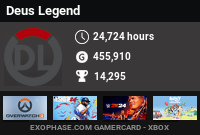
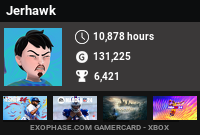
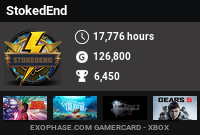
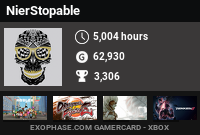
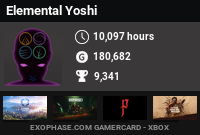







0 comments:
Post a Comment
Please be respectful and no spam.